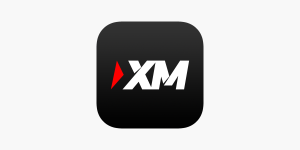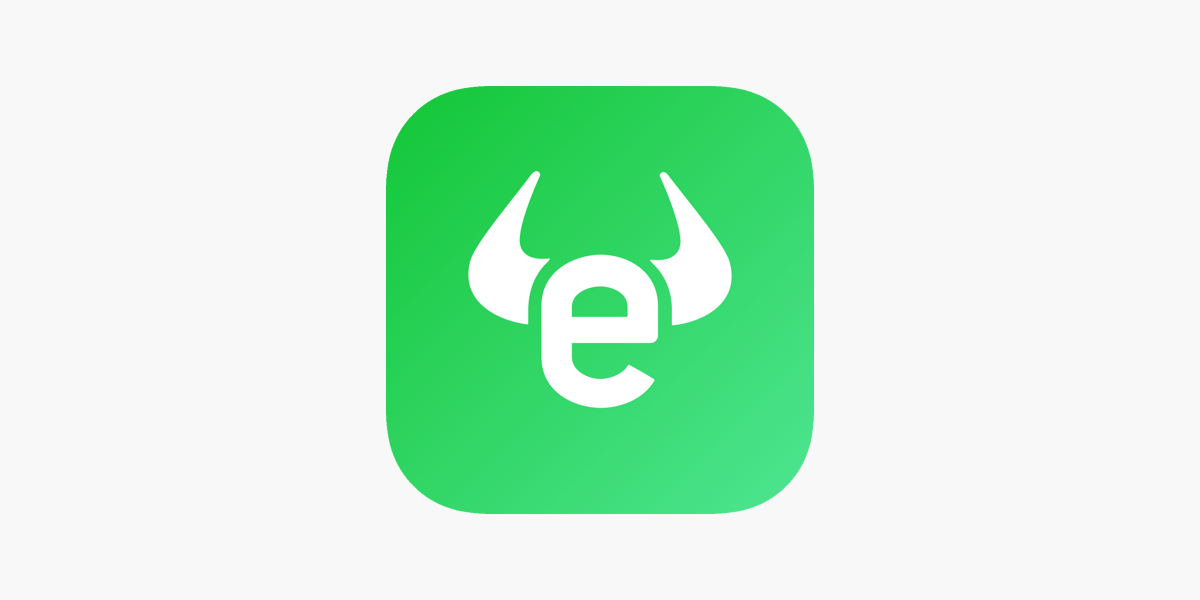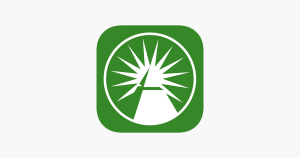
XM

eToro

Fidelity

Webull
Investing in the stock market has become more accessible than ever before, thanks to a plethora of trading apps available in Australia. These apps cater to both experienced traders and newcomers, offering features that can be navigated easily on a mobile device. Whether on iOS or Android platforms, the best trading apps in Australia provide users with real-time data, educational resources, and the ability to trade a variety of assets with just a few taps on their screens.
The right investment app can make a significant difference in a user’s trading experience, offering a blend of user-friendly design, robust security measures, and comprehensive trading tools. These apps are designed to help users manage their portfolios on the go, enabling them to make informed decisions quickly and efficiently. The top contenders in the market have distinguished themselves by providing exceptional service, low fees, and a wide range of investment options that appeal to the diverse needs of investors across the country.
When considering mobile trading apps, Australians have several factors to weigh, such as the ease of use, fees, range of investments offered, and the level of customer support. Those new to trading might prioritize educational resources and a simple interface, while more advanced users might look for detailed charting tools and a broad array of international stocks and other securities. It is essential to choose an app that aligns with one’s investment strategy and goals to achieve the best possible outcome in the dynamic world of stock trading.
Essential Features of Trading Apps
When selecting a trading app, investors should pay close attention to features that enhance usability and information access. An app’s value is significantly influenced by its user experience, available research tools, portfolio management functions, and the range of asset classes it supports.
User Experience and Interface
A trading app should provide a user-friendly interface that is intuitive and streamlined, allowing traders to navigate the platform with ease and efficiency. Layouts should be clear, with important functions such as order placement, account management, and support access readily available.
Research Tools and Market Insights
Access to research tools and up-to-date market insights is critical for making informed decisions. Good trading apps offer real-time data, analytical tools, and customizable watchlists, making it easier for investors to track their favorite assets and identify market trends.
Portfolio Management and Watchlist
Efficient portfolio management is facilitated by features that allow investors to monitor their holdings, track performance, and adjust strategies as needed. The capacity to set up and manage a personalized watchlist ensures that individuals can keep an eye on potential investment opportunities.
Asset Classes and Investment Options
The best apps offer a diverse range of asset classes and investment options, from stocks and bonds to cryptocurrencies. This variety enables investors to diversify their portfolios, manage risk, and explore new opportunities in different markets.
Comparing Top Australian Trading Apps
As investors navigate the Australian Market, it’s essential to select a trading app that aligns with their investment strategy and goals. The following apps are considered some of the best due to their features, usability, and unique offerings.
CommSec: A Comprehensive Review
Commonwealth Securities (CommSec) is a dominant player in Australia renowned for its comprehensive trading tools and extensive market research. CommSec offers a detailed view of market trends and a user-friendly experience, ideal for both newcomers and seasoned investors. Their mobile app and web platform allow users to trade Australian shares with ease, making it a leading choice for active traders.
IG Trading App Insights
IG stands out for its sophisticated platform catering to traders who are keen on diving into the Australian and international markets. IG’s app provides advanced charting tools, access to over 17,000 markets, and competitive pricing. Especially noteworthy is their seamless integration with ProRealTime, a powerful analysis software suited for technical traders.
The Etoro Platform for Social Trading
EToro has made a name for itself through social trading, which allows Australian investors to mirror the trades of experienced investors. This platform is particularly attractive for those looking to leverage collective wisdom and learn from the community. EToro’s user-friendly interface and focus on cryptocurrency markets complement its social trading features, making it an appealing option for modern traders.
SelfWealth for Strategic Investors
Lastly, SelfWealth is quickly becoming a favorite amongst strategic investors for its flat-fee pricing structure and no percentage commission costs. Its offering of real-time market data and the ability to follow top traders’ portfolios solidifies it as a valuable tool in the arsenal of any Australian investor focused on building wealth systematically.
Each app presents a set of tools and features tailored to different types of investors in Australia. Whether it’s leveraging the robust support of CommSec, utilizing the advanced tools of IG, engaging with the community on EToro, or executing strategic trades with SelfWealth, investors have strong options to enhance their trading experience.
Understanding Brokerage and Fees
When choosing a trading app in Australia, investors should scrutinize the brokerage and fees structures. These costs can significantly affect returns over time, and understanding their impact is crucial for an informed investment strategy.
Comparing Brokerage Fees Structures
Brokerage fees are the costs charged by brokers for executing trades on behalf of their clients. In Australia, investors often encounter two main types of brokerage fee structures: flat fees and commission-based fees. Flat fee structures charge a set amount per trade regardless of the trade size, such as IG’s low-cost brokerage service for trading global stocks and ETFs. Commission-based fees, on the other hand, are calculated as a percentage of the trade value, which can vary among trading platforms.
- Flat Fee Examples:
- Fixed amount (e.g., $10 per trade)
- Scaled according to trade size (e.g., $5 for trades up to $1,000)
- Commission-Based Examples:
- Percentage of the trade value (e.g., 0.1% per trade)
- Minimum fee threshold applies
The Impact of Inactivity Fees
An inactivity fee is a charge assessed by brokers for accounts that have not engaged in any buying or selling of securities for a certain period. Many brokers impose inactivity fees to encourage trading activity and to compensate for the maintenance of dormant accounts. It is important for investors to understand the terms regarding inactivity fees, as these can erode a portfolio’s value if not managed properly. Saxo Bank, for example, might charge a fee for inactivity, as indicated in their terms and conditions.
- Typical Inactivity Fee Assessment:
- Time Frame: After 6 or 12 months of inactivity
- Cost: Can vary, often a set monthly fee
Investors should directly compare the costs associated with different trading apps, factoring in both brokerage and potential inactivity fees, to select the most cost-efficient platform.
Investment Types and Trading Options
The Australian financial market provides a diverse array of investment vehicles and trading options, catering to various investor preferences and risk profiles. Individuals can engage in trading shares and equities, delve into the complexities of forex and CFDs, diversify with ETFs and indices, and explore the dynamic world of cryptocurrency investments.
Shares and Equities
Investors seeking ownership in companies can opt for shares and equities, leveraging platforms like Forbes Advisor, which lists top brokers in this segment. Shares represent a fraction of a company’s equity, offering both growth potential through price appreciation and income via dividends.
Forex and CFDs Trading
Forex and CFDs trading is a prime choice for those interested in the foreign exchange market and leveraged products. CFDs, or contracts for difference, allow traders to speculate on price movements without owning the underlying assets. Reliable trading platforms such as Saxo provide access to global forex markets and a range of CFD instruments.
ETFs and Indices Trading
ETFs and indices trading offers a structured approach to market exposure, often with lower costs. ETFs (exchange-traded funds) track indices, commodities, or baskets of assets and can be traded like individual stocks. Detailed guides and reviews can be found on resources like Arielle Executive, highlighting the best apps for these investment types.
Cryptocurrency Investments
The cryptocurrency investments space is rapidly growing, with platforms like Investing.com featuring brokers that provide access to popular digital currencies. Cryptocurrencies offer a high-risk, high-reward investment option, with the potential for significant returns alongside notable volatility.
Security and Regulation Standards
When it comes to trading in Australia, the security of platforms and adherence to regulation standards are paramount. Traders prioritize these aspects to ensure their investments are protected under stringent regulatory frameworks.
ASIC: Ensuring Compliance
The Australian Securities and Investments Commission (ASIC) is the regulatory body responsible for overseeing the operation of trading apps in Australia. It enforces financial services laws to protect consumers, investors, and creditors. ASIC ensures that trading platforms comply with a code of conduct that maintains the integrity of financial markets.
Data Security for Traders
Data security is a critical concern for traders using online apps. Robust data protection measures are vital to safeguard personal and financial information. Trading platforms in Australia are required to implement strong encryption protocols and compliance with privacy laws to protect trader data effectively.
Support and Educational Resources
When considering trading apps in Australia, a robust support system and comprehensive educational resources are vital for both beginners and experienced traders. These elements ensure that users can trade with confidence, having access to assistance when needed and resources to enhance their trading knowledge.
Customer Support Services
An essential component for any trading platform is its Customer Support Services. The eToro trading app is known for its strong customer support structure, offering various channels such as live chats and tickets for traders to obtain assistance. Similarly, CommSec, Australia’s vast trading platform, provides dedicated support through phone and email, ensuring that users can easily resolve issues.
Learning to Trade: Educational Tools
For Beginners embarking on their trading journey, accessible Educational Tools are indispensable. IC Markets stands out with its beginner-friendly approach, offering extensive educational materials tailored for novice traders. They can take advantage of webinars, articles, and tutorials specifically designed to build a solid foundation in stock trading. Likewise, eToro offers a plethora of Learning opportunities, including a variety of guides and a virtual trading account where beginners can practice without financial risk.
Account Management and Fees
Selecting the right trading app in Australia involves a careful examination of how your funds will be handled and what costs you may incur for account management. Each trading platform has its own procedures for deposits and withdrawals, as well as a structure of fees that can affect your investment returns.
Deposits and Withdrawals
Most trading apps allow users to deposit funds via bank transfer, which is commonly preferred for its security and convenience. Users should look for platforms that offer seamless fund transfer capabilities, ensuring easy movement of funds into their trading account without exorbitant fees.
- Deposit Funds: Generally free of charge; may be instant or take several business days.
- Bank Transfer: Usually available; can vary in processing time.
Trading apps should also offer a straightforward process for withdrawals. While withdrawal fees might be applicable on some platforms, users should expect transparency regarding these costs.
- Withdrawal Fees: Can range from free to a fixed fee or a percentage of the withdrawal amount.
- Bank Transfer: Typically used for withdrawals; timeframes for these transactions should be disclosed.
Understanding Account Fees
Account fees encompass various charges associated with the maintenance and operation of a trading account. Users must stay informed about any potential fees to manage their investments effectively.
- Monthly Account Fees: Some apps may charge a monthly service fee.
- Trading Fees: Costs incurred per trade can impact overall profitability.
For instance, Saxo Markets offers access to over 40 international markets, with no monthly account fees, according to Forbes. Users must always compare such fee structures across different platforms to find the most cost-effective solution for their trading needs.
Mobile Trading App Advantages
Mobile trading apps empower investors with unparalleled convenience and advanced features that are tailored specifically for handheld devices. These platforms are revolutionizing the way investors engage with the financial markets.
Anywhere Trading on Mobile Devices
With a mobile trading app, investors have the freedom to engage in trading activities anywhere with an internet connection. This on-the-go capability ensures that they can respond swiftly to market changes and opportunities. For example, Superhero enables investors to execute trades with a flat fee, allowing for transparent and accessible trading without being tethered to a desktop.
Features Specific to Mobile Apps
Mobile apps often offer unique features that enhance the trading experience. These can range from push notifications that alert users to market news or changes in their portfolio, to security features like biometric authentication. The Finder recognizes eToro and CMC Invest as leading apps providing low-cost trades and user-friendly interfaces designed for mobile device optimization. These dedicated functionalities make mobile trading apps a valuable tool for both novice and seasoned traders.
Strategies and Tips for Traders
Successful trading hinges on well-crafted strategies and robust risk management. Traders should approach the markets with a plan that includes clear objectives and a thorough understanding of potential risks.
Developing Effective Trading Strategies
Developing effective trading strategies is crucial for both beginner and active traders. A sound strategy is characterized by identifiable goals and thorough market analysis. Beginner traders should focus on establishing a foundation in market education and may benefit from apps like Selfwealth, known for its educational resources. They can start with simple strategies that involve well-researched stocks or index funds, while active traders might engage in more complex trades, like swing trading or day trading, which require a deep understanding of market indicators and trend analyses.
- Technical Analysis: Involves studying chart patterns and indicators to forecast future price movements.
- Fundamental Analysis: Focuses on evaluating a company’s financial health and underlying value.
- Quantitative Analysis: Relies on mathematical models to identify trading opportunities.
Risk Management in Trading
Effective risk management is essential to safeguard one’s capital at risk. Traders should never risk more than they can afford to lose. Establishing stop-loss orders can help limit potential losses. Diversification across different asset classes can also spread and potentially mitigate risk.
- Stop-Loss Orders: An order placed with a broker to buy or sell once the stock reaches a certain price.
- Risk-to-Reward Ratios: A rule of thumb to measure the expected returns of a trade against the potential risk.
Both beginner and seasoned traders must stay informed on market conditions and maintain the discipline to adhere to their trading strategies and risk limits. Using apps rated highly, such as those detailed on Investing.com Australia for updated market data and trend analysis, can assist traders in making informed decisions.
Frequently Asked Questions
In this section, readers can find concise answers to the most common questions about trading apps in Australia, detailing aspects such as beginner-friendly features, safety, top-rated apps, easy-to-use platforms for novices, commission-free options, and criteria for selecting the most suitable app.
Which trading app offers the best features for beginners in Australia?
Selfwealth is recognized for its educational resources and has garnered a significant user base, making it a strong contender for beginners looking to enter the Australian trading space.
How can I safely trade shares online in Australia?
To ensure safe online trading, investors should choose reputable platforms with robust security measures. They should also follow best practices such as using secure networks, creating strong passwords, and enabling two-factor authentication where available.
What are the top-rated investment apps available in Australia?
The Best Australian stock trading apps for 2024 include eToro and CMC Invest for US and ASX trades respectively, as well as the IG Trading app which is known for low-cost trades.
Which platforms in Australia provide easy-to-use trading for novice investors?
Platforms such as Westpac Online Investing app are reputed for their user-friendly interfaces, tailored to accommodate both experienced and novice investors in Australia.
Are there any Australian trading apps with zero commission trading?
There are platforms offering zero commission trading on certain products or to a certain extent. Investors should thoroughly research and compare apps to find those that best suit their financial strategies and preferences.
How do I choose the best stock trading app for my needs in Australia?
Investors should consider factors such as fees, available investments, ease of use, educational resources, and the app’s overall reputation. Comparing these elements can help in choosing a trading app that aligns with an investor’s goals and preferences.
